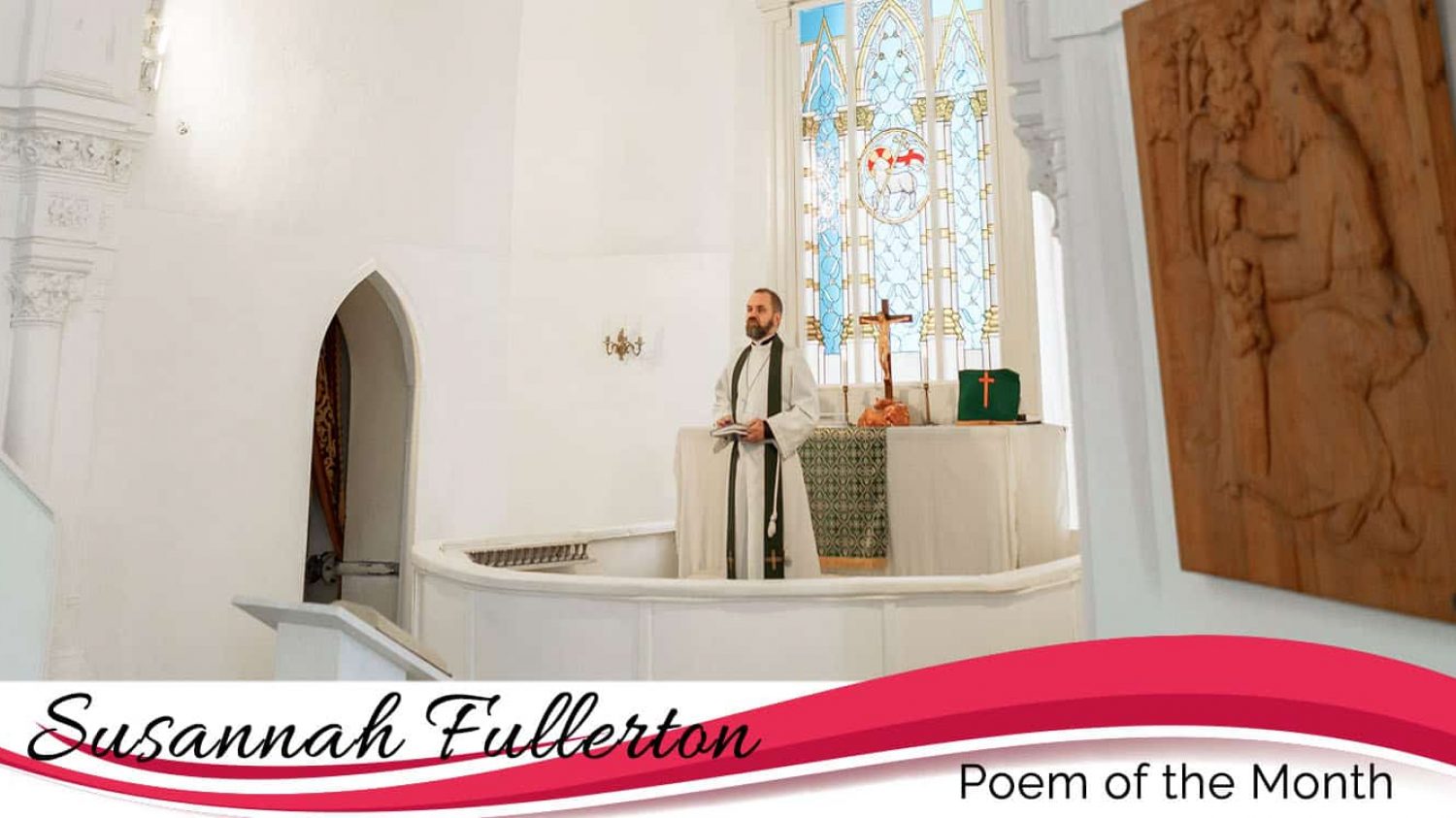Thomas Hardy was not a religious man. In Tess of the D’Urbervilles he makes it all too clear what he thinks of the minister who refuses to baptize Tess’s bastard child and several of his works show his contempt for a church that failed to help the poor and oppressed. This poem of his is one of my favourites.
In Church by Thomas Hardy
“And now to God the Father”, he ends,
And his voice thrills up to the topmost tiles:
Each listener chokes as he bows and bends,
And emotion pervades the crowded aisles.
Then the preacher glides to the vestry-door,
And shuts it, and thinks he is seen no more.
The door swings softly ajar meanwhile,
And a pupil of his in the Bible class,
Who adores him as one without gloss or guile,
Sees her idol stand with a satisfied smile
And re-enact at the vestry-glass
Each pulpit gesture in deft dumb-show
That had moved the congregation so.
In the first verse of the poem, the preacher entrances a packed church with his emotive sermon. The man is quite an actor – his voice has good voice projection, he knows how to evoke feeling in his audience. But is the congregation worshipping their minister, instead of God?
In the second verse, the man is unmasked and this is done through the clear-sighted vision of a child (it’s rather like Hans Christian Andersen’s The Emperor’s New Clothes where it takes a young child to see that the Emperor is naked). The little girl sees her idol practising all his gestures and special effects, when he thinks he is unobserved, and she is left disillusioned and betrayed.
In the Victorian era it was extremely common for ministers to enter the church without any particular religious vocation. It was a comfortable job and if one had relatives who could get you a living, then you took on that job, even without deep religious belief. The minister in this poem is an example of that. For him a sermon is a performance, not a way of teaching about God. In a devastating way, he shows us the hypocrisy of the Victorian church, and a minister who is far too fond of himself to really care about his parish, or the poor or troubled people who are likely to be a part of it. As an atheist, I love this poem!
Sadly, I could not find a nice YouTube reading of the poem to share with you. Hearing Richard Burton read Hardy is blissful, but I only have his reading on a CD and cannot find it on-line for you. Apologies!
Did you enjoy this poem? Let me know by leaving a comment.
Selected links for relevant websites, books, movies, videos, and more. Some of these links lead to protected content on this website, learn more about that here.
Susannah Fullerton: Thomas Hardy is born
Susannah Fullerton: Thomas Hardy marries for the second time
Susannah Fullerton: Thomas Hardy dies
Susannah Fullerton: Beyond the Last Lamp by Thomas Hardy
Susannah Fullerton: When I set out for Lyonnesse by Thomas Hardy
Susannah Fullerton: In Church by Thomas Hardy
Susannah Fullerton: The Ruined Maid by Thomas Hardy
Susannah Fullerton: Thomas Hardy’s Ale
Susannah Fullerton: Thomas Hardy’s Women
Susannah Fullerton: 5 Unpopular 19th Century Novels that Became Classics
Susannah Fullerton: Thomas Hardy: Novelist and Poet
Susannah Fullerton: Literary Readers Guide to Far From the Madding Crowd by Thomas Hardy
Susannah Fullerton: Video Talk – Tess of the D’Urbervilles by Thomas Hardy

John
As an ex-Anglican clergyman who relinquished his Orders I can very much relate to Hardy.
Hardy, not unlike myself, is a Philosophical Pessimist. If you enjoy Hardy, you will probably enjoy Schopenhauer, Leopardi, and James Thomson B V.
Susannah Fullerton
Thanks for your comments and also the recommendations. It is a powerful poem about fakery and show, with messages all too relevant to our world today.
Cherry Hood
Reading R.Dawkins’ ‘The God Delusion’ at the moment, and recently Ken Follet’s ‘Pillars of the Earth’ Trilogy, the sin of Hardy’s minister is a minor if very symbolic institutional abuse.
Susannah Fullerton
Yes, in comparison with paedophile priests, corruption in the church and the turning of a blind eye to so many abuses from the church, Hardy’s minister’s offence is very minor.
I love Richard Dawkins!